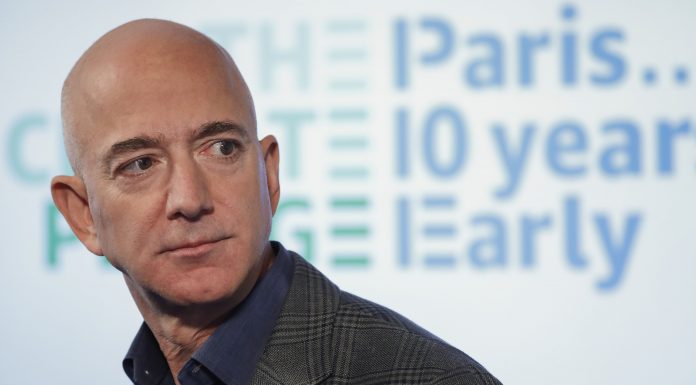(Associated Press) The Biden administration is drilling down on the argument that higher corporate tax rates would ultimately help an ailing economy, saying the resulting infrastructure investments would boost growth.
Treasury Secretary Janet Yellen said Wednesday it was “self-defeating” for then-President Donald Trump to assume that cutting the corporate tax rate to 21% from 35% in 2017 would make the economy more competitive and unleash growth. Yellen said that competing on tax rates came at the expense of investing in workers.
“Tax reform is not a zero-sum game,” she told reporters on a call. “Win-win is an overused phrase, but we have a real win in front of us now.”
President Joe Biden last week proposed a $2.3 trillion infrastructure plan that would largely be funded by an increase in the corporate tax rate to 28% and an expanded global minimum tax set at 21%.
Yellen said the plan would double-down on workers’ skills and traditional infrastructure such as roads and bridges as well as modern infrastructure such as broadband. The increases would produce roughly $2.5 trillion in revenues over 15 years, enough to cover the eight years’ worth of infrastructure investments being proposed.
Key to the Biden administration’s pitch is bringing corporate tax revenues closer to their historic levels, rather than hiking them to new highs that could make U.S. businesses less competitive globally.
Trump’s 2017 tax cuts halved corporate tax revenues to 1% of gross domestic product, which is a measure of the total income in the economy. Revenues had previously equaled 2% of GDP. That higher figure is still below the 3% average of peer nations in the Organization for Economic Co-operation and Development, the Treasury Department said in its summary of the plan.
Yellen also said the 2017 tax cuts failed to deliver on Trump’s promise of an accelerating economy. Instead, the cuts encouraged other countries to keep reducing their own tax rates in a “race-to-the-bottom” that the Biden plan believes can be halted with an enhanced minimum tax and agreements with other nations.
The infrastructure investments would increase the level of GDP in 2024 by 1.6%, according to estimates by Moody’s Analytics.
But the proposal has also drawn criticism from business groups such as the U.S. Chamber of Commerce and the Business Roundtable, which argue that higher taxes would hurt U.S. companies operating worldwide and the wider economy.
The Penn-Wharton Budget Model issued a report Wednesday saying the combined spending and taxes would cause government debt to rise by 2031 and then decrease by 2050. But following the plan, GDP would be lower by 0.8% in 2050.
Amazon founder and CEO Jeff Bezos endorsed President Joe Biden’s focus on building up the country’s infrastructure Tuesday and said the company even supports a corporate tax rate hike to help pay for it.
Bezos’ statement, posted on the company’s website, was notable because it came after Biden singled out the company for criticism about how much it pays in federal taxes when he recently unveiled his $2.3 trillion infrastructure proposal.
Biden has proposed hiking the U.S. corporate tax rate to 28% from 21% to help pay for his plan, an idea that Republican leaders are panning as harmful to economic growth. Democrats will surely cite support from individual companies to undercut that argument.
“We recognize this investment will require concessions from all sides — both on the specifics of what’s included as well as how it gets paid for (we’re supportive of a rise in the corporate tax rate),” Bezos wrote. “We look forward to Congress and the Administration coming together to find the right, balanced solution that maintains or enhances U.S. competitiveness.”
Bezos was careful not to endorse a specific plan. Rather, he said “we support the Biden Administration’s focus on making bold investments in American infrastructure.”
The company would benefit from the investments made in roads, bridges, airports and broadband…
Amazon has long been criticized for paying virtually no federal taxes in the U.S. for years even as it built an e-commerce empire that currently has a market value of $1.6 trillion.
That has changed slightly in recent years as the Seattle company has become more profitable. Last year, it reported paying $1.7 billion in federal taxes on its U.S. income of $20.2 billion, working out to an effective tax rate of about 8%.



